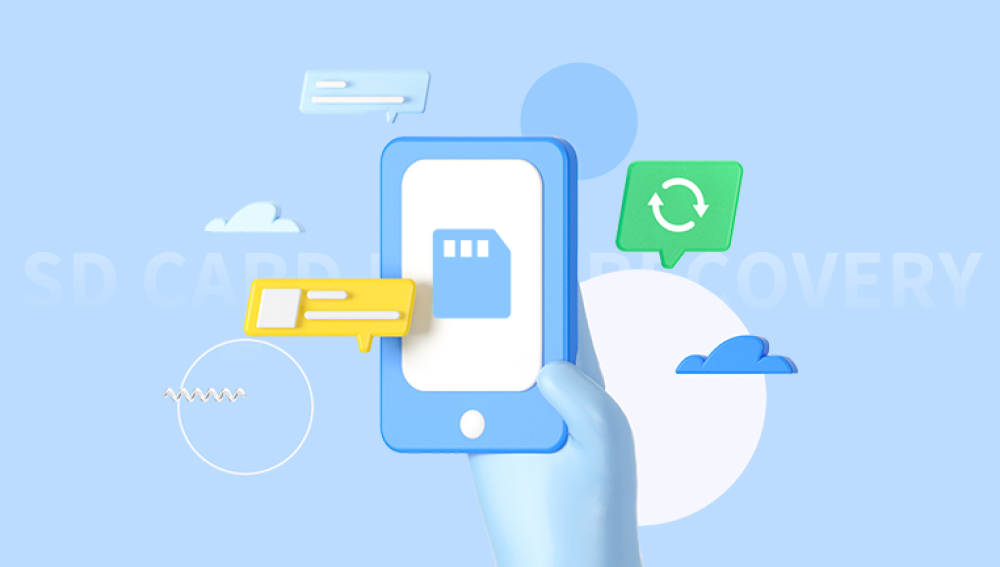SD cards are widely used in various devices like cameras, smartphones, drones, and more to store videos and other data. They offer a convenient and portable way to carry large amounts of data, but they are not infallible. Accidental deletions, formatting errors, file corruption, or even physical damage can lead to the loss of important videos. Fortunately, with the right tools and techniques, it is often possible to recover deleted videos from an SD card.
How Video Files are Stored on SD Cards
SD cards use a file system to manage and store data. When a video is recorded, it is saved in blocks on the card. The file system maintains a record of where each file is stored. When you delete a video, the file system marks the space occupied by the video as available for new data, but the actual video data remains on the card until it is overwritten by new files.

What Happens When Videos are Deleted
When a video is deleted, the file system updates its directory to indicate that the space previously occupied by the video is now free. The data itself is not immediately erased. This is why it is possible to recover deleted videos, especially if no new data has been written to the card since the deletion.
Pre-recovery Best Practices
Stop Using the SD Card Immediately
To maximize the chances of recovering your deleted videos, stop using the SD card as soon as you realize the videos are missing. Continuing to use the card can overwrite the deleted data, making recovery much more difficult or even impossible.
Do Not Format the SD Card
Formatting the SD card will erase the file system's directory structure, making it even harder to recover deleted files. If the card is already formatted, recovery is still possible, but the process will be more complex.
Methods to Recover Deleted Videos
Using Data Recovery Software
Several data recovery software options are available to help you recover deleted videos from an SD card. Here are some popular choices:
Drecov Data Recovery is a reliable and user-friendly software designed to recover lost, deleted, or formatted files from various storage devices. Whether you’ve accidentally deleted important videos, documents, photos, or suffered data loss due to formatting or corruption, Drecov Data Recovery offers a straightforward solution to restore your files efficiently.
This tool supports a wide range of devices, including SD cards, USB drives, hard drives, and external storage systems, making it versatile for all types of data recovery needs. Its intuitive interface ensures that even users with no technical expertise can easily navigate the recovery process. Simply connect the affected device, scan for lost data, and preview recoverable files before restoring them.
Step-by-Step Guide for Software Recovery
Download and Install the Software
Choose a reputable data recovery program and download it to your computer. Install the software following the on-screen instructions.
Connect the SD Card to Your Computer
Use an SD card reader to connect the card to your computer. Ensure the computer recognizes the card.
Launch the Data Recovery Software
Open the recovery software and select the SD card from the list of available drives.
Scan the SD Card
Initiate a scan of the SD card. The software will search for recoverable files, including deleted videos. This process may take some time, depending on the size of the card and the amount of data stored.
Preview and Select Files to Recover
Once the scan is complete, the software will display a list of recoverable files. Preview the files to verify they are the videos you want to recover. Select the desired files.
Recover the Videos
Choose a location on your computer to save the recovered videos. Avoid saving them back to the SD card to prevent overwriting other deleted files. Click the "Recover" button to restore the selected videos.
Using Built-in System Utilities
Both Windows and macOS offer built-in tools that can assist in data recovery.
Windows File Recovery Tool
Windows users can utilize the Windows File Recovery tool, a command-line application provided by Microsoft.
Download and Install Windows File Recovery
Install the tool from the Microsoft Store.
Open Command Prompt
Launch Command Prompt as an administrator.
Use the Tool to Recover Files
Enter the appropriate command to scan and recover files from the SD card. For example:
bash
winfr source-drive: destination-drive: /n \path\to\file\*
Replace source-drive: with the letter of your SD card and destination-drive: with the letter of the drive where you want to save the recovered files.
macOS Options (Time Machine, etc.)
macOS users can use Time Machine or other built-in recovery tools.
Time Machine
If you have Time Machine backups, you can restore deleted files from a previous backup.
Disk Utility
Use Disk Utility to create a disk image of the SD card and attempt recovery from the image.
Professional Recovery Services
If software solutions do not work or the SD card is physically damaged, consider professional data recovery services. These services have specialized equipment and expertise to recover data from damaged or corrupted SD cards.
Preventing Future Data Loss
Tips for Regularly Backing Up Videos
Regular Backups: Regularly back up your videos to multiple locations, such as an external hard drive, cloud storage, or another SD card.
Automated Backup Solutions: Use automated backup solutions to ensure your data is regularly backed up without manual intervention.
Proper SD Card Maintenance
Handle with Care: Avoid physical damage by handling the SD card carefully and storing it in a protective case.
Safe Ejection: Always use the "safely eject" option on your device to prevent file system corruption.
Avoid Full Capacity: Do not fill the SD card to its maximum capacity, as this can increase the risk of data corruption.
Restoring deleted videos from an SD card is a manageable task with the right tools and techniques. By stopping the use of the SD card immediately, utilizing data recovery software, and considering professional services if necessary, you can recover your lost videos. Additionally, implementing regular backups and proper SD card maintenance can help prevent future data loss. Follow the steps outlined in this guide to maximize your chances of a successful recovery and safeguard your valuable data.




